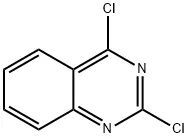
- +86-13363869198
- weimiaohb@126.com

Dec . 12, 2024 12:28 Back to list
what is an intermediate in organic chemistry
Understanding Intermediates in Organic Chemistry
Organic chemistry is a vast field that focuses on the study of carbon-containing compounds, their structures, properties, reactions, and synthesis. A crucial aspect of organic chemistry involves understanding the various species that form during chemical reactions, particularly intermediates. This article aims to explain what intermediates are, their significance, and examples of common intermediates encountered in organic reactions.
What are Intermediates?
Intermediates are transient species that appear during the transformation of reactants into products in a chemical reaction. They are formed and consumed during the course of a reaction and typically possess a relatively short lifespan. Intermediates are not present in the final products; instead, they facilitate the transition from reactants to products. These species can take various forms, such as ions, radicals, or neutral molecules, depending on the reaction conditions.
The Role of Intermediates in Reactions
The existence of intermediates is essential for understanding the mechanism of a reaction. A reaction mechanism details the stepwise process through which reactants convert into products, often involving multiple steps and, consequently, several intermediates. By studying these intermediates, chemists can gain insight into how molecular rearrangements and transformations occur.
For instance, the reaction between an alkyl halide and a nucleophile often proceeds through an intermediate, such as a carbocation or a carbanion, depending on the reaction pathway. In nucleophilic substitution reactions, these intermediates have distinct properties that influence the overall reaction rate and product formation. Understanding the stability and reactivity of intermediates allows chemists to predict the outcome of reactions and design more efficient synthesis routes.
Types of Intermediates
Intermediates can be classified broadly into several categories, with the most commonly encountered being
1. Carbocations These positively charged species have a carbon atom with three bonds and an empty p-orbital. Carbocations are key intermediates in many organic reactions, including octane isomerization and electrophilic aromatic substitution. The stability of a carbocation is influenced by neighboring groups, with tertiary carbocations being more stable than secondary and primary due to hyperconjugation and inductive effects.
what is an intermediate in organic chemistry

2. Carbanions In contrast to carbocations, carbanions are negatively charged intermediates with a carbon atom that has three bonds and a lone pair of electrons. They play critical roles in nucleophilic reactions, especially in reactions involving the formation of carbon-carbon bonds. The stability of a carbanion decreases as the number of substituents on the carbon atom increases.
3. Free Radicals These species contain an unpaired electron and are highly reactive. Free radicals can form during various organic reactions, such as polymerization and combustion processes. Their reactivity makes them essential intermediates, but also challenging to study due to their short lifespans.
4. Arenium Ions These are positively charged cyclic intermediates that form during electrophilic aromatic substitution reactions. The formation of an arenium ion involves the addition of an electrophile to an aromatic ring, disrupting its delocalized electron cloud.
Significance of Intermediates
Intermediates are not just theoretical constructs; they have practical implications in the fields of organic synthesis and industrial chemistry. By understanding intermediates, chemists can
- Design better catalysts that can stabilize intermediates, thereby increasing reaction efficiency. - Develop new synthetic routes to create complex molecules by manipulating the stability and reactivity of intermediates. - Predict reaction outcomes, helping chemists select conditions that favor the formation of desired products over side products.
Additionally, intermediates can play crucial roles in biological systems. For instance, they might be involved in enzyme-mediated reactions, where understanding their role can lead to breakthroughs in drug design and metabolic engineering.
Conclusion
Intermediates in organic chemistry are vital characters in the story of chemical transformations. By understanding their nature, stability, and reactivity, chemists can unlock the potential of organic reactions, leading to advancements in synthetic methodologies and applications in various industries. The study of intermediates not only deepens our understanding of organic chemistry but also enhances our ability to innovate in chemical synthesis and materials science.
-
Premium Pharma Intermediates | AI-Optimized Synthesis
NewsAug.03,2025
-
GS-441524 White Liquid Production for Factories | AI-Optimized
NewsAug.02,2025
-
AI-Optimized CAS: 79099-07-3 Factories for High Yield
NewsAug.01,2025
-
Premium CAS 1451-83-8 Factory with GPT-4 Turbo | AI-Optimized
NewsJul.31,2025
-
Pharmaceutical Intermediates - AI-Optimized Synthesis & Purity
NewsJul.31,2025
-
Top CAS: 79099-07-3 Factories & Wholesale Supplier from China
NewsJul.30,2025